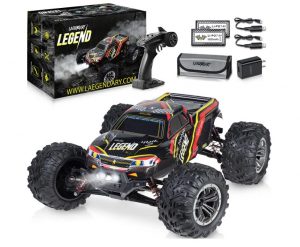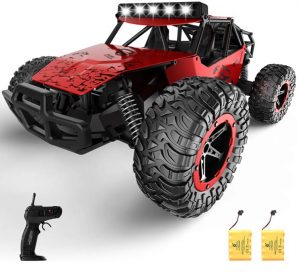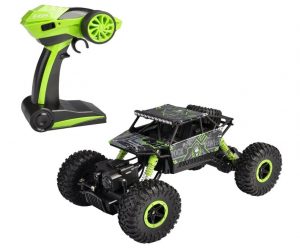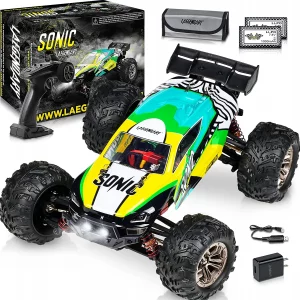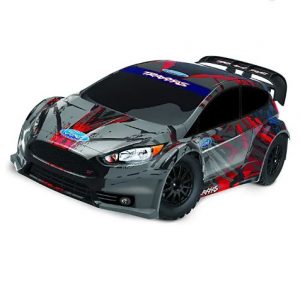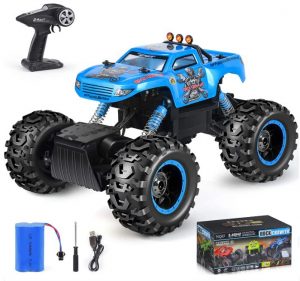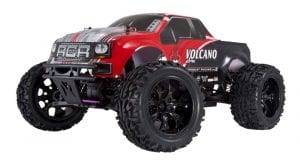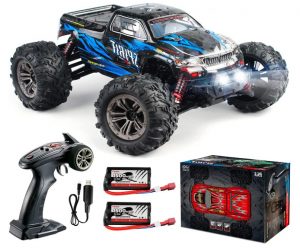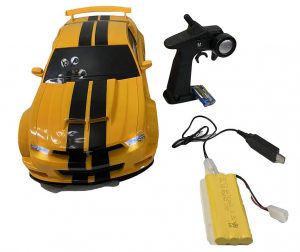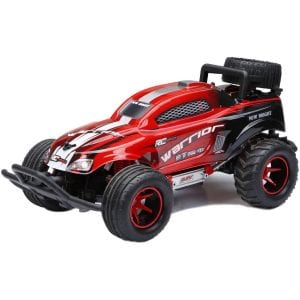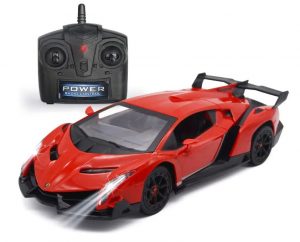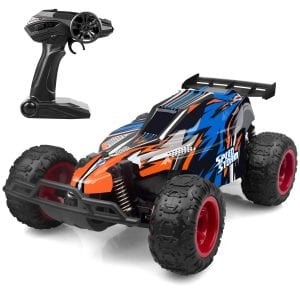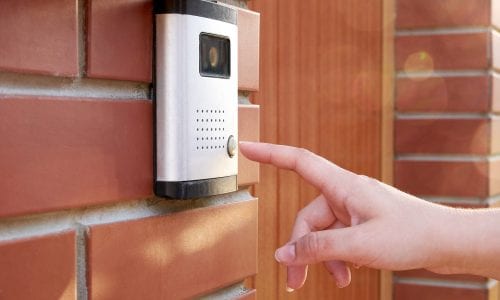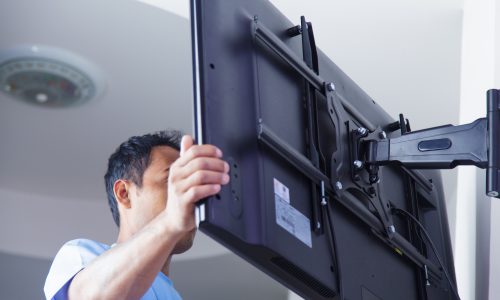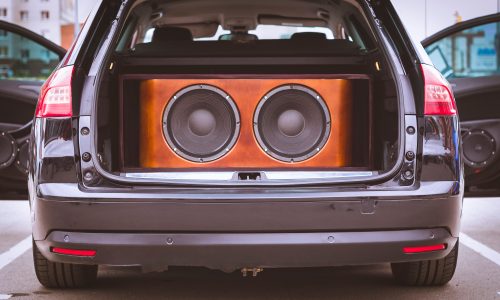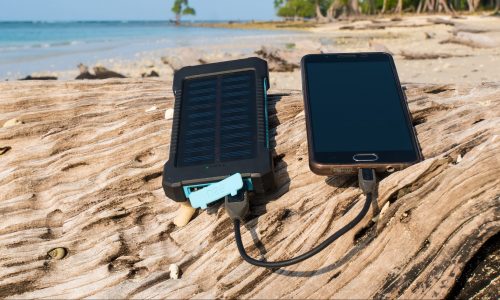The Best RC Car
We looked at the top 12 RC Cars and dug through the reviews from 31 of the most popular review sites including and more. The result is a ranking of the best RC Cars.
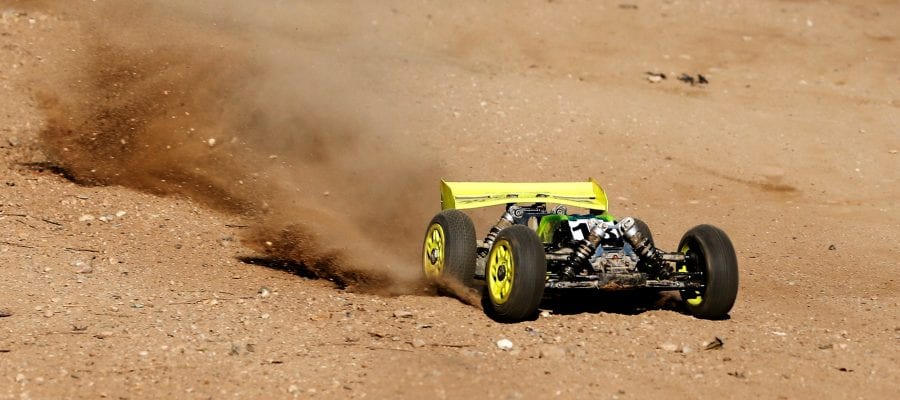
Our Review Process
Don't Waste Your Money is focused on helping you make the best purchasing decision. Our team of experts spends hundreds of hours analyzing, testing, and researching products so you don't have to. Learn more.
Our Picks For The Top RC Cars
- 1. LÆGENDARY High-Speed Brushed Motor Remote Control Car
- 2. SZJJX Desert Buggy Rechargeable Remote Control Car
- 3. Hapinic Off-Road Anti-Interference RC Car
- 4. LÆGENDARY All-Terrain Weather-Resistant RC Car
- 5. Traxxas Officially Licensed Short Course RC Car
- 6. NQD Extended Battery Racing RC Car
- 7. Redcat Racing Electric Volcano EPX RC Car
- 8. Hosim 4-Wheel Drive Anti-Collision RC Car
- 9. XQ Toys LED Headlights Multi-User RC Car
- 10. New Bright Pro Warrior Off-Road Full Function RC Car
- 11. QUN FENG Rechargeable Lamborghini Electric RC Car
- 12. JEYPOD Remote Control Car
If you're looking for an RC car that can handle a wide variety of terrains, this model is your best bet. This top-notch car is also waterproof, so you can take to the beach or nearby lake without worry. It's also got two batteries and a connector for up to 30 minutes of run time.
Top-Notch RC CarTake a trip to the beach and drive this waterproof RC car along the shore for a day of fun with the family.
With its ability to spin 360 degrees and flip over to the other side, this RC car keeps both adults and children entertained. Since the car uses an advanced 2.4Ghz remote frequency, families can operate more than one car at the same time. Parents will appreciate that the car is both shock-proof and waterproof.
Spins and FlipsThis RC car is able to do a variety of stunts, including flip and turn a full 360 degrees.
This RC car is quicker to charge than other models, taking just 60 minutes before it's ready to go. It also runs for up to 30 minutes at a time at speeds of up to 15km/h. Users can take it for a spin on either grass, dirt or sand.
Quick Charging TimeThanks to 2.4GHZ radio technology, this RC car can run without interference from other cars.
Impressive is the best word to describe this RC car. It can be operated over just about any kind of terrain and since it's water-resistant, an unexpected rain storm is no problem. The included remote control allows for switching between two speeds and offers a range of up to 250 feet.
Super SpeedyThis RC car can reach speeds of up to 25 miles per hour.
Buying Guide
Many of us have great childhood memories of steering an RC (or radio control) car around the living room on birthdays or Christmas mornings — and not-so-great memories of breaking it during an ill-advised stunt. If you haven’t played with an RC car since those days, you should know there are models out there that are greatly improved from the cheap toys you may have gotten, as long as you’re willing to pay a little extra.
First of all, keep in mind that we’re talking about radio control cars. A remote control car uses a hand-held transmitter to relay steering and speed commands to a miniature car or truck, but the two might be connected by a wire. A radio controlled car is controlled by radio waves sent from the transmitter to a receiver in the car, and the distance between the two is limited only by the power of the transmitter. In some top-end RC units, that might be as far as 1000 feet or more. In more inexpensive children’s cars, it might be limited to the length of a large room. If you’re taking it outdoors,, bear in mind that the effective distance of the transmitter signal will be affected by objects between you and your car.
Whether you’re buying an RC car, truck or buggy, one of the first statistics you might see is scale. 1/10 scale is one of the most common ones to see, and that means the car is a tenth the size of whatever automobile it’s trying to represent. That size can vary, but it generally ranges from 14 to 16 inches. Other popular scales are 1/12 and 1/16, and you might find mini-RC cars that go as small as 1/64.
While kids might love playing with RC cars, there’s a substantial adult hobby culture surrounding them. Gearheads exchange tips, tweak engines and even build their own cars from scratch to race at big events. Among the high-end models common at these races, you might see gas-powered cars which run on nitro fuel. These can be very fast but also noisy. They’re definitely for hobbyists only, as there’s a lot more to break.
Beginners will want to stick with electric RC cars, which are no slouch in the speed department and a lot easier to start racing with. You’ll find several hobby-grade vehicles sporting electric motors, and the most powerful (read: expensive) can top 100 mph. For trucks and buggies, the high end is much lower — somewhere around 50 mph. Battery life and charging time can vary, but in general look for mAh (milliamp hours) as a good indicator of battery capacity.
Why we recommend these rc cars?
Products Considered
Products Analyzed
Expert Reviews Included
User Opinions Analyzed
Our experts reviewed the top 12 RC Cars and also dug through the reviews from 31 of the most popular review sites including and more. The result is a ranking of the best of the best RC Cars.
DWYM is your trusted roduct review source. Our team reviews thousands of product reviews from the trusted top experts and combines them into one easy-to-understand score. Learn more.
The Best Bang For Your Buck
Hapinic Off-Road Anti-Interference RC Car
Key Takeawy
This RC car is quicker to charge than other models, taking just 60 minutes before it's ready to go. It also runs for up to 30 minutes at a time at speeds of up to 15km/h. Users can take it for a spin on either grass, dirt or sand.
What other experts liked
What other experts didn't like
What to Look For
- RC cars come in a wide price range, from simple toys to high-tech racing vehicles that can be modified just like their full-size counterparts. In any case, they’ll need three major components: a transmitter (powered by a battery), a receiver (installed into the car) and the car itself. If you’re planning to start racing out of the box, make sure that an RC car is equipped with all three. Cars labeled as “ready to run” will generally have all you need to start.
- 2WD or 4WD? Even non-truck drivers will recognize those options as 2-wheel or 4-wheel drive, and the same transmission choice applies to RC cars. In full-size trucks, 4WD might be the premium type, but that’s not necessarily the case here. RC cars with 4WD are more stable, and the controls are definitely responsive — possibly too much so for beginners. 2WD models tend to be cheaper and a bit slower, but more durable. The easier control will also mean less accidents.
- Holding races with other hobbyists might be the most fun you can get out of your RC car. This might take some preparation depending on the car type, but things have gotten much easier lately for mini-racing enthusiasts. In the early days of RC racing, two cars operating on the same radio frequency might have to have different crystals installed in the receiver and transmitter. This would allow them to operate on different channels in the same frequency, ensuring their signals wouldn’t interfere with each other. While there are still some RC cars that use that workaround, an increasing majority now operate at 2.4 GHz, a wide frequency that allows cars to receive signals on their own narrow band — no crystals needed. Not only does this allow other 2.4 GHz cars to race, but you can also play without worrying about interference from other RC units in the immediate area.
- Battery life is a big concern, especially if you’re planning to take your RC buggy to the beach or somewhere far from a charging station. Most RC batteries are rechargeable, but they can take awhile. Nickel metal hydride (NiMH) batteries are the standard, and they’re heavy but easy to use. Lithium Polymer (LiPo) batteries are a step up from that, delivering more power and lasting longer — at a price, of course.
- Everybody wants to know how fast their RC car will go. Max speed should be clearly advertised, but keep in mind that number can vary widely depending on your driving conditions (especially when it comes to off-road vehicles).
- Conversations about engine specs can get into the weeds quickly when it comes to hobby-grade cars, but in general, you’ll see designations for “brushed” and “brushless” motors. Brushless motors are more efficient and durable. Brushed motors use a series of tiny metal brushes to convert power to motion, and they’re best for beginners. While they don’t deliver quite as much speed as brushless motors, they can still be plenty effective and are cheaper.
More to Explore
You might think the modern crop of RC cars can get pricey, but never underestimate the value of nostalgia. Collectors might expect to pay upwards of $2,500 for a 1979 Tamiya Sand Scorcher, one of the finest examples of golden age RC tech.
How fast can an RC car get? So far, American Nic Case holds that record with his Radio Controlled Bullet, a custom build that became the first model to top 200 mph in 2014.

